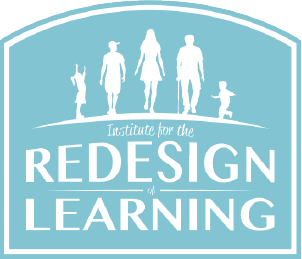Schools across California and the nation celebrate National School Counseling Week to honor school counselors for the important role they play in helping students examine their talents, strengths, abilities, and interest. Counselors work in professional partnerships with teachers and support personnel to provide an educational system where students can realize their true potential.
To learn more about the school counseling program at IRL, Abel V. interviewed Program Manager of the Counseling Department for Almansor and Westmoreland Academies, Laura House. Laura has been with IRL for fifteen years providing counseling services to students when needed, while supervising, encouraging, empowering, and motivating the counselling team to promote a positive and supportive environment for our students, while creating an environment of growth as professionals.

Before jumping into the interview, we asked Laura about the collage of words hanging on her wall.
Laura – Each student has an Assignment Sheet on his/her desk. The sheet is a dialogue between the teacher and student about behavioral competencies demonstrated during each academic subject throughout the school day. It is also a springboard for dialogue between the teacher and the student to discuss a student’s self-observation and how they are learning (e.g., identifying challenges to demonstrating competencies or collaborative problem-solving about how the student might do things differently going forward) and empowers students to “take charge” of their education/learning. Some teachers also use the sheets to communicate with caregivers about the student’s school day.
Therapists use the assignment sheet to communicate with the client and teacher about behavioral competencies and challenges demonstrated during counseling session. Therapists document the assignment sheet at each counseling session.
Abel – What kind of population do you serve?
Laura – We serve Non-Public Schools (NPS) students.
Abel – How many students do we regularly serve?
Laura – It fluctuates with enrollment, but we serve approximately 160 students currently between Almansor and Westmoreland academies.
Abel – What type of services do we provide through our counseling department?
Laura – Through our counseling department we provide Designated Instruction and Services, as well as Educationally Related Intensive Counseling Services. And these are provided through the Individualized Education Program process. The majority of students who attend our school have counseling services.
Abel – Because you empower students to reach for their best… what is the importance of “empowerment” when working with students?
Laura – The idea of empowerment is key! Our Mission Statement covers it: “To empower individuals of all abilities to take charge of their own learning and lives, making it possible for them to be competent, caring and contributing members of society; and to provide learning opportunities for families, professionals, and communities to support those efforts.” Our work is all about encouraging our students to access their curriculum and learn and practice skills to support that. We build on our student’s strengths and support them in identifying barriers to reaching their educational and life goals. Sometimes when students have been through a lot in their lives, it can be challenging for them to see their “good.” We see the good and the beauty in each student and endeavor to support them in reclaiming what is already there, but possibly obscured by negative beliefs.
Abel – How important are the words you use when working with children?
Laura – Very important! In Taking Charge, Dr. Nancy Lavelle talks about how the language we use creates our reality. Do we use judgmental words such as “good” and “bad,” or do we use more accurate language such as “safe, unsafe or wise, unwise “? Do we describe student’s concerns and difficulties as “problems” or “challenges”? Some of the linguistic shifts are subtle, but can make a huge difference.
For example: “problem” implies something overwhelming and seemingly insurmountable. “Challenge” implies something big, but potentially solvable. Another important aspect of this idea is supporting students becoming aware of their self-talk/self-statements. Many of our negative self-beliefs go unnoticed because they have become part of our self-narrative. We encourage students to observe their self-statements without judgment, so that they can begin to make different choices about how they talk to and view themselves.
Abel – How important is the environment/counseling space when working with children?
Laura – Very important! Just as the therapeutic relationship provides a safe space within which to explore and grow, the external environment should also be warm, welcoming, positive, safe. The foyer of the Counseling trailer is full of positive statements, solutions to challenges, and a pictorial representation of the seven Assignment Sheet competencies. Counseling rooms are warm and welcoming, with positive, encouraging, uplifting statements on the walls.
Abel – Is there any particular story that you would like to highlight?
Laura – More than a story, I would really want to highlight IRL’s counseling team, because they do an amazing job day after day after day. You know, I do the behind-the-scenes kind of thing, but I really wanted to give a special shout out to Mark Acuna, Ivonne Franco Rodriguez, Mylene Villanueva and our newest member of the counseling team is Mariah Harvey.
